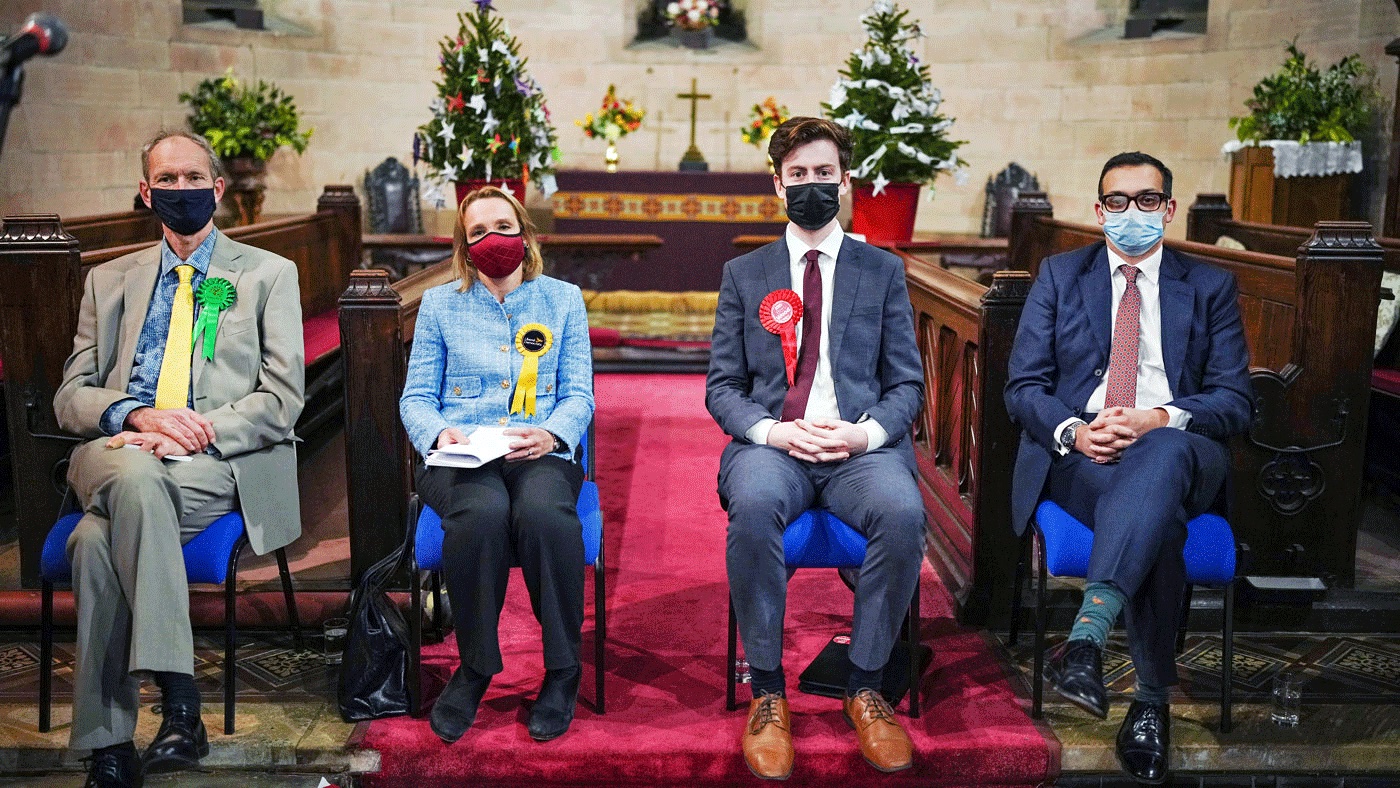The vacating of an MP’s seat mid-term is always cause for excitement among political observers, especially when Government is facing serious political pressure. So we shouldn’t be surprised that today’s North Shropshire by-election is, according to commentators, pundits and even Tory MPs, a ‘test’ of Boris Johnson’s leadership.
The truism is that by-elections do not reflect general election trends, so anything can happen. But by-elections are still bound by patterns that go beyond the day-to-day news cycle even though the tendency is for the noise of the latter to drown out the signal of the former.
Taking a superforecaster’s approach to this by-election, we can assess just how likely it is that the Tories will hold onto their seat. By looking at the percentage of by-elections that led to a seat change between parties since 1945, we can establish a base rate to give us a probability of what will happen in North Shropshire.
Contrary to the claim made by Liberal Democrat leader Ed Davey that winning the constituency is a “coin toss” (bookies agree), the Liberal Democrats’ chance of winning the seat is actually much lower. According to my estimate, based on tallying up by-elections over the last 70 years, the Lib Dems’ chances stand closer to around 20%. This is to say that it’s possible, but it’s far from the likeliest outcome.
Coverage of by-elections tends not to focus on such facts. Before the Batley and Spen election, senior Labour figures put the party’s chances of holding the seat at 5%, even though Labour had held onto the seat for over 20 years. Betting markets meanwhile put Labour’s chance of winning at around 20%. When Labour won, the New Statesman‘s follow-up analysis argued that Labour’s subsequent victory was “against the odds” while the likes of the Mirror, the i and the Daily Record presented the result as a surprise, rather than the most common outcome in such by-elections.
Bookies similarly put the Brexit Party’s Mike Greene as the favourite to take Peterborough in 2019, a highly marginal seat that became available after a recall petition succeeded against Fiona Onasanya. While the race was tight, punters should have been more mindful of incumbents’ statistical advantage during by-elections. In the end, Labour won by nearly 600 votes.
Of course, parties have an incentive to downplay their odds of winning, encouraging their voters to go to the polls. And betting markets reflect what bets people are making rather than genuine odds. One could also argue that the Tories’ recent polling, the Christmas party scandals and disquiet about pandemic rules has given the Lib Dems a real chance. But this analysis is ultimately misguided because the long-term trends are still very much in the Tories’ favour. North Shropshire has, for decades, been a comfortably Tory seat and it will be incredibly difficult for the Lib Dems to overturn such a big deficit in votes. So my prediction is that the Tories are the favourites, with about an 80% chance of winning.











Join the discussion
Join like minded readers that support our journalism by becoming a paid subscriber
To join the discussion in the comments, become a paid subscriber.
Join like minded readers that support our journalism, read unlimited articles and enjoy other subscriber-only benefits.
Subscribe